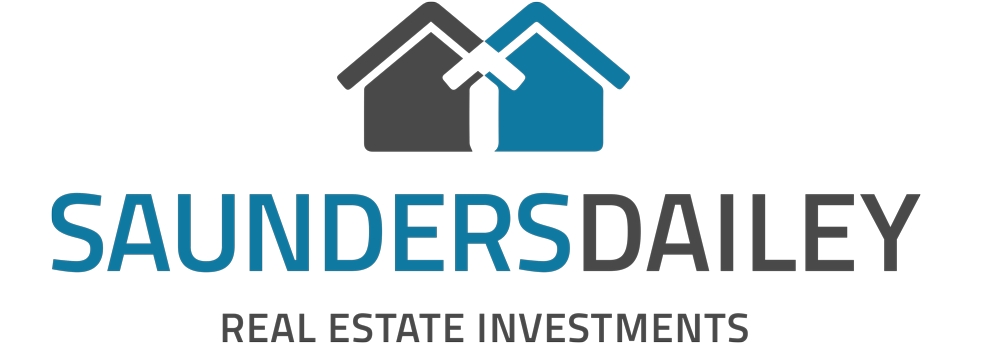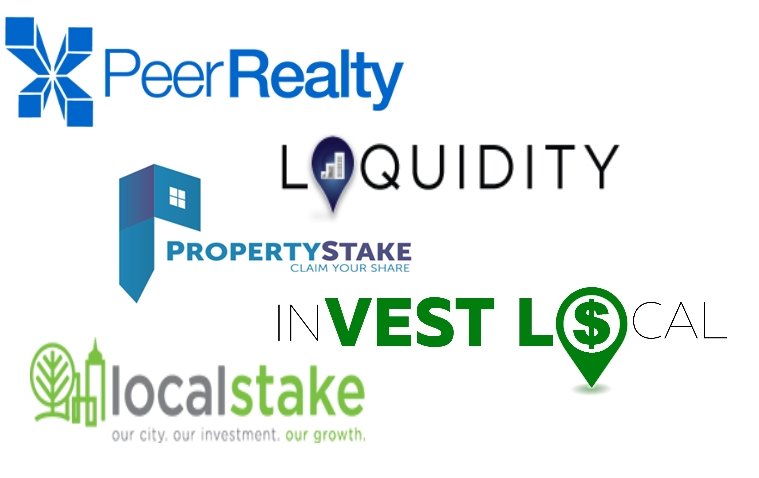 The awareness and popularity of real estate based equity crowdfunding (i.e. “RECfunds”) continues to grow exponentially. As do the number of real estate crowdfunding portals. RECFunds offer substantial benefits to today’s investors including access to multiple types of projects, smaller barriers to investment, and portfolio diversification. RECfunds carry some significant risks as well however. One of the lesser known risks to some investors is the risk that the project is not being “underwritten” properly.
The awareness and popularity of real estate based equity crowdfunding (i.e. “RECfunds”) continues to grow exponentially. As do the number of real estate crowdfunding portals. RECFunds offer substantial benefits to today’s investors including access to multiple types of projects, smaller barriers to investment, and portfolio diversification. RECfunds carry some significant risks as well however. One of the lesser known risks to some investors is the risk that the project is not being “underwritten” properly.
Introduction.
First let me clarify something. When using the term “underwritten” or “underwriting” in this article I am not using them in the securities sense in that the portals are (or should be) responsible for pricing the deal etc. I am simply using these terms in the general investor/due diligence sense to describe when and how a portal reviews the claims and projections of a given RECfund project. For example, evaluating whether or not a new RECfund project will (or even can) be successful, and to what degree, requires a detailed case-by-case analysis of the project and of multiple economic, geographical and other factors affecting the project. With many RECfund projects this is first done by the real estate developer/sponsor and the analysis is presented to the portal. The portal will then perform its own limited “underwriting” analysis which includes (or typically should include) analyzing the general validity and plausibility of all presented materials and leveraging their own experience to identify additional risks affecting the project or its potential profitability.
The goal of this underwriting process is ultimately to help the portal ensure that it is putting up credible projects (NOT to ensure the probability of the projected return). In this industry, reputation in everything and a portal’s respective underwriting process and acumen can, and often is, a source of competitive advantage. While some portals (such as Fundrise) identify certain types and relative weights of various underwriting factors used to review a project, many keep this internal analysis silent. Such silence begs the question, what factors are these portal evaluating and are they catching everything?
The Issue.
There are any of a number of subjective factors that can ultimately make or break the profitability of a real estate project ranging from creeping project costs, to surrounding comparable project values to even local unemployment rates. Most of us don’t have the time, patience or experience to properly evaluate those risks when looking to invest in a real estate project. That is why  when most investors see a RECfund project touting a potential 12% - 20% (or above) return they would like to believe that the developer and the portal did their homework and that this potential return is, at the very least, based in reality.
when most investors see a RECfund project touting a potential 12% - 20% (or above) return they would like to believe that the developer and the portal did their homework and that this potential return is, at the very least, based in reality.
Sure investors read through the investment documents and make their own assumptions but they are probably not driving to the project site to see if a train track is running through the back yard or if there are planes flying overhead every five minutes. These are factors the investor is assuming (whether or not they should) are being analyzed by the developer, reviewed by the portal and are reflected in the projected return rate. That is not always the case. Experienced developers will (or should be) analyzing these initial predictions that is true. Most portals however do not have the local experience necessary to analyze the granular details of a RECfund project (nor should they really be expected to do so). The majority of current RECfund portals review and offer projects from across the nation. While their underwriting teams often have significant experience in vetting projects, it just isn’t possible for these portals to know, or even have time to examine, ALL of the applicable factors that go into evaluating a potential RECfund project. Some factors are inherently local and require a local eye.
This issue is further exacerbated when talking about “residential” RECfund projects. Commercial deals often involve significantly less subjective factors and thus lend themselves somewhat better to analysis on a national level. I mean an office is basically an office and a Starbucks is basically a Starbucks right? When you get into the residential area however, people get much pickier and the profitability of a particular project can (and often does) swing substantially over an area of only a few blocks. I had this happen to me personally just last week when I went to look at a couple houses. These houses were almost identical in terms of size, shape, layout and finish level. There were even both on corner lots if you can believe that (those of you in  Chicago know what a rarity that is). Despite being literally 6 blocks from each other one property (“House 1”) was offered for approximately 30% more than the other (“House 2”). Why? Apparently somewhere in that 6 block distance is the border between one school zone and another and, once crossed, the value of the surrounding properties drops considerably.
Chicago know what a rarity that is). Despite being literally 6 blocks from each other one property (“House 1”) was offered for approximately 30% more than the other (“House 2”). Why? Apparently somewhere in that 6 block distance is the border between one school zone and another and, once crossed, the value of the surrounding properties drops considerably.
My own experience should illustrate the inherent problem with blindly relying on a portals underwriting evaluation. Had both House 1 and House 2 been RECfund projects (everything else considered equal), it is entirely conceivable that the developer would have based their projections on selling both properties for the same price and the portal would have had no reason to doubt those numbers (as their underwriting team would not have had the necessary local knowledge to identify the overvaluation). Hence the RECfund projects would have went live showing the same potential return for investors when, in fact, House 2 cannot and would not sell for the intended sale price based on the school zone issue.
What To Do.
Do your homework, simple as that. No you don’t have to become a real estate investment professional but don’t blindly hand your money to a project because it is showing a potentially high return. Try to learn as much as you can about what you’re investing in and what the developer/portal has analyzed in its creating its projections. This includes (among other things):
- Reading ALL if the information on the RECfund project. This includes the information on the portal and in the investment documents. Yes I know the legal documents are boring but it’s your money at risk so wake up. What you want to do is try to determine all of the factors the developer has considered in determining the riskiness and potential profitability of the project and the projected return (and, ultimately, if you identify any holes in their logic etc.).
- Ask questions (if you have them) of the developer and read all of the comments/questions posted by others (if any).
- Do a little research on the property (e.g. do a google search, ask a broker friend for info (if you have one), etc.) You don’t have to go crazy, but you should get enough information to be able to answer basic questions such as: What neighborhood is it in? Is it by a highway/airport/train? Was it that place I saw on the news last night where that guy got his head blow off? Etc.
Another important point to consider is the portal itself. As noted above, a source of competitive advantage in this industry is the respective experience and acumen of the portal’s underwriting staff. Many portals have their own niche and/or strengths so try to learn as much as possible about the portal’s focus and the experience of their agents. This information is often readily available on the site or via a simple email to the portal. Having this information can be the first step in analyzing the potential underwriting risk of a given project. For example, one portal might be filled with people who have spent their entire careers identifying and vetting commercial office building projects across the country. If the portal suddenly throws up a small local “fix and flip” RECfund project you might want to be much more cautious about that project as it is outside their general comfort zone and thus the underwriting risk might be high (i.e. they may have missed some important factors).
In addition, when looking at a “residential type” RECfund project, be aware of the local risks. As stated, residential projects tend to be subject to a plethora of subjective factors that even the best national based crowdfunding portals are not considering (nor should they be responsible for). These factors NEED to be considered and if you do not feel comfortable doing that on your own I would highly recommend talking with (or otherwise engaging) a financial adviser/local property broker/experienced friend or, at the very least, seeking out a “local” focused portal with significant knowledge and experience in the particular market you are interested.
Local Portals.
Over the past couple years, several “local” investment focused crowdfunding portals have emerged which offer crowdfunding investments in everything from start-ups, to real estate projects, to craft breweries. As opposed to other portals who post crowdfunding projects from across the contrary, these local focused crowdfunding portals seek to leverage their knowledge of a particular geographical area by focusing on finding and posting projects only from that area. This is the basic premises behind the recently rolled-out crowdfunding platform www.SaundersDaily.com.
 Saunders Daily is a new RECfund portal based out of Minneapolis which focuses on equity based investments in residential “income producing” (e.g. rental) properties in Minnesota and the surrounding areas. This portal was started by local real estate veteran Marshall Saunders and co-founder Jason Dailey. Marshall, who has over two decades of real estate and held the coveted distinction of co-owner and broker of the largest RE/MAX franchise in the world (with over 900 agents across Minnesota and parts of Wisconsin), believes his significant local experience will provide benefit to investors (not to mention a huge competitive advantage to the portal).
Saunders Daily is a new RECfund portal based out of Minneapolis which focuses on equity based investments in residential “income producing” (e.g. rental) properties in Minnesota and the surrounding areas. This portal was started by local real estate veteran Marshall Saunders and co-founder Jason Dailey. Marshall, who has over two decades of real estate and held the coveted distinction of co-owner and broker of the largest RE/MAX franchise in the world (with over 900 agents across Minnesota and parts of Wisconsin), believes his significant local experience will provide benefit to investors (not to mention a huge competitive advantage to the portal).
When I spoke with Marshall recently he told me that: “real estate investment, particularly
residential real estate investment, is a local play not a national one, and it requires an experienced touch.” He went on to note that “every local market is different and high-level analyst reports will not cut-it when important variables like comparable prices, vacancy rates, and even demographics can vary significantly in the same square mile in some cities .”
vacancy rates, and even demographics can vary significantly in the same square mile in some cities .”
The company is currently strictly focused on the Twin Cities residential real estate market for now, but according to Marshall they are already planning on expanding elsewhere in Minnesota and eventually other areas of the Midwest. In response to this I asked Marshall if he had any concerns about losing his “local” focus as he expanded his operations and he assured me that the company “is going to be extremely careful in its expansion efforts to ensure that it is only working with highly experienced professionals in each market. We are not going to expand simply for the sake of expanding. We fully intend to make strategic expansion decision that will allow the company to increase its “local” market knowledge, not just its footprint.” I also
asked Marshall if he had any plans to get involved with commercial real estate projects and he said “our team knows residential properties, that is what we do best and what we  intend to stick to. In the future if our team grows to include others with significant commercial real estate experience then that may be an option but until then we are sticking with what we know.” Currently Saunders Daily is only able to offer investments to “accredited investors” but I know from our discussions that Marshall is extremely anxious to be able to offer deals to “non-accredited investors” as well under the recently approved “MNvest” intrastate crowdfunding bill once it becomes effective.
intend to stick to. In the future if our team grows to include others with significant commercial real estate experience then that may be an option but until then we are sticking with what we know.” Currently Saunders Daily is only able to offer investments to “accredited investors” but I know from our discussions that Marshall is extremely anxious to be able to offer deals to “non-accredited investors” as well under the recently approved “MNvest” intrastate crowdfunding bill once it becomes effective.
Local portals, by virtue of having a staff that knows the area, often have a much better handle on the benefits and risks of local products/projects. As such they can be better at vetting projects then their national competitors. Are these “local” investments safer? I can’t say for certain but local based portals often do much more than a “high level” analysis when vetting projects so investors will at least be able to benefit from a more detailed analysis of the project risks. As Marshall stated “our investors will feel secure about investing ion our projects because they know we are not out looking for deals in areas that we do not have local experience. We stick to what we know and that is how we create the most benefit for our investors.”
 Other portals with a strong local focus include: Loquidity.com (Real Estate focus; in Michigan), PeerRealty.com (Real Estate focus; in Illinois), PropertyStake.com (Real Estate focus; in Illinois), LocalStake.com (General focus; in Indiana) and Vestlo.com (General focus; in Illinois (under construction)).
Other portals with a strong local focus include: Loquidity.com (Real Estate focus; in Michigan), PeerRealty.com (Real Estate focus; in Illinois), PropertyStake.com (Real Estate focus; in Illinois), LocalStake.com (General focus; in Indiana) and Vestlo.com (General focus; in Illinois (under construction)).
Conclusion.
“If it looks too good to be true, it probably is.” It is just as true today as when your mother said it to you as a kid. Investors need to do more than take projected returns of RECfund investments at face value. Let’s be clear about something, while many crowdfunding portals are doing a good job of generally vetting projects before they are posted most are NOT holding themselves out as, and should not be considered, investment advisers. Basically the portals job in underwriting projects is simply to make sure that the materials and projections presented on the site are within the “realm of possible outcomes” and are not fraudulent on their face. The job of portal is NOT on the other hand to determine whether the success of the project, or the likelihood of attaining the projected return, is probable or even likely. Some portals (such as Fundrise) are more transparent than others in how they do their respective analysis a helping investors to better analyze the risks of a given project. Further, local portals (such as SaundersDaily) often have the granular knowledge and experience to significantly tighten the “realm of possible outcomes” (i.e. by vetting and turning away more of the improbably projects) resulting in a more detailed analysis of each project before they are posted to investors.
At the end of the day however, no matter which portal is used, investors need to do their own analysis of the risk factors involved with each project and should not be blinded by high potential returns. It’s their money and investors should be willing to put in at least a  little time and effort when choosing how and where to invest it. Otherwise don’t cry when, not if, you lose it. If nothing else, investors should at least go with my general rule of thumb which is to take any stated projected return with a pinch of salt. By that I mean, cut it in half. If you’re stilling willing to invest at the lower rate than maybe it’s worth a shot. At least you won’t be as upset if it doesn’t meet the high projected return shown in the project documents.
little time and effort when choosing how and where to invest it. Otherwise don’t cry when, not if, you lose it. If nothing else, investors should at least go with my general rule of thumb which is to take any stated projected return with a pinch of salt. By that I mean, cut it in half. If you’re stilling willing to invest at the lower rate than maybe it’s worth a shot. At least you won’t be as upset if it doesn’t meet the high projected return shown in the project documents.

Hello,
As the founder of the first French real estate crowdfunding platform, and also as real estate developer, I completely agree with this article. It’s good to remind investors of the real risks they have when investing in real estate online.
Jean-Baptiste
Tony, awesome article. Great takeaway for people like me…Love the post-it , “Do your homework”
Pingback: How Good Is Too Good? The Underwriting Risks Of Crowdfunding Real Estate Deals | Times Realty News